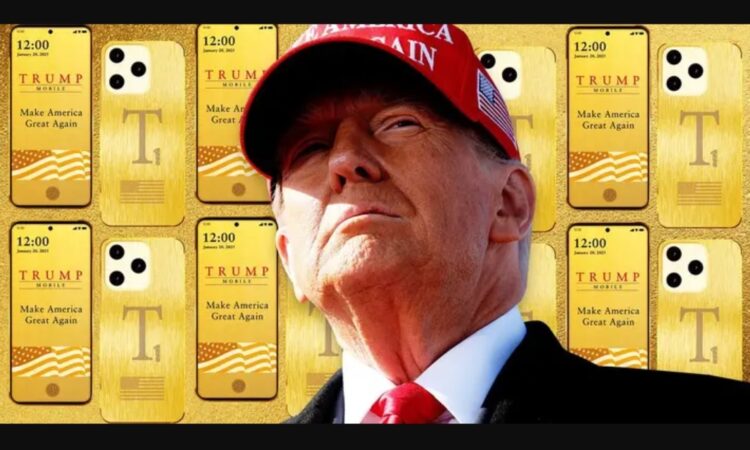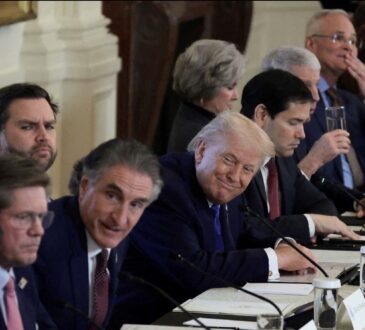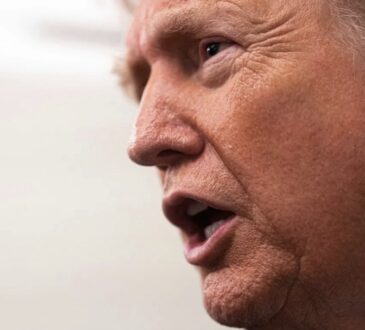
The Trump-branded gold smartphone is being marketed as a premium, patriotic product tied to Donald Trump’s name. It costs \$499, and it’s part of a new mobile service called Trump Mobile, which the Trump Organization has just launched. The company says this phone is “proudly made in the USA” and presents it as a unique symbol of American pride. But a closer look shows that much of the marketing is more about image than substance.
Despite the bold claims, experts in supply chains and technology say it’s simply not realistic to fully manufacture a modern smartphone in the United States right now. That’s because critical components like the display, memory chips, and camera modules are all made overseas—mostly in Asian countries such as China and South Korea. The U.S. doesn’t have the infrastructure or capacity to make those parts at scale. While Trump Mobile says assembly will take place in places like Alabama, Florida, and California, that doesn’t mean the phone is truly “made in America” by the standards set by regulators like the Federal Trade Commission. In reality, the Trump Organization isn’t building this phone themselves. It’s a licensing deal, meaning they’ve agreed to let someone else put the Trump name on the product in exchange for a cut of the profits. The Trump Organization is not directly involved in the design, manufacturing, or engineering of the phone.
Some experts believe the T1 Phone looks nearly identical to a device already available from a Chinese manufacturer. That suggests the phone may be a rebranded version of an existing product rather than something uniquely designed or engineered for Trump Mobile. Eric Trump has said that one day these phones could all be built in the U.S., but industry experts are skeptical. Building a smartphone manufacturing industry from scratch in the U.S. would take years—likely five to ten—and require billions of dollars, skilled labor, and a reliable domestic supply chain, none of which currently exist at the scale needed.
Then there’s the mobile service itself. Trump Mobile is what’s called a Mobile Virtual Network Operator, or MVNO. That means it doesn’t run its own cellular towers; instead, it rents access from the big three carriers—AT\&T, Verizon, and T-Mobile. This is a common business model, and there’s nothing unusual about it, but it means you’re essentially paying for a reskinned version of a service you could get elsewhere, often for less. Trump Mobile advertises a monthly plan at a very specific price—\$45.47—to nod to Donald Trump being both the 45th and (he claims) 47th president. But that price doesn’t tell the whole story.
Many people trying to sign up for Trump Mobile have discovered extra costs that aren’t mentioned in the main advertising. For example, one reporter said they were charged an extra \$17.25 per month in telecom taxes, bringing the total monthly cost to \$64.70. That’s much higher than similar plans from other companies, especially since many prepaid and MVNO providers already offer unlimited talk, text, and data for around \$25 to \$40 per month. So even though the Trump Mobile plan claims to offer “unbeatable value,” in practice, it’s often more expensive than comparable services.
Another major concern is that the T1 Phone hasn’t been released yet. The Trump Mobile website allows you to place a preorder by paying \$100 upfront, but the phone won’t actually ship until later this year. Right now, there’s very little information available about the phone’s specs or features. You don’t know what kind of processor it has, how secure it is, which Android version it runs on, or which apps come pre-installed. This lack of transparency makes it difficult to judge whether the phone is worth its \$499 price tag. And making things more risky, the company has a strict no-refund policy. Unless they decide otherwise on a case-by-case basis, all sales are final, so you could end up with a phone you don’t like and no way to return it.
What you do know for certain is that the phone will be gold, and owning it might be seen as a statement of political loyalty. For some die-hard Trump supporters, that’s the main reason to buy it. Analysts expect that this phone will mostly appeal to people who are deeply invested in the Trump brand and willing to purchase anything tied to his name. From their perspective, it’s less about the actual phone and more about supporting the cause or making a statement.
However, if you’re just looking for a reliable, well-priced smartphone and phone plan, there are many other options on the market that offer better value, more transparency, and proven performance. The Trump phone may have strong symbolic value for a certain group of people, but for the average consumer who wants clear details, trustworthy pricing, and good service, this product probably isn’t the best choice.




